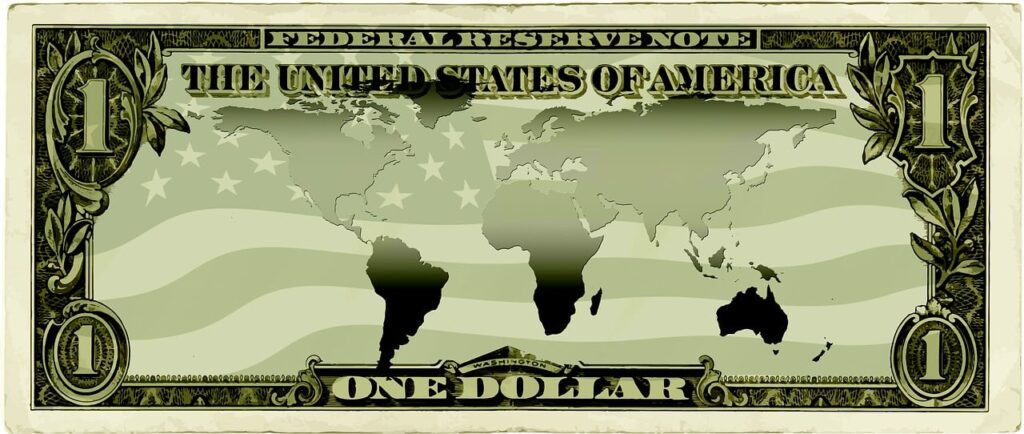Sovereign wealth funds are investment funds owned by states, typically financed by government surpluses, foreign exchange reserves, or proceeds from the sale of state assets.SWFs have become increasingly important players in the global financial system, with assets under management (AUM) exceeding US$10 trillion in 2023. Sovereign Wealth Funds invest in a wide range of asset classes, including stocks, bonds, real estate, infrastructure, and private equity.

They are often long-term investors with a focus on generating sustainable returns and preserving capital. SWFs are also increasingly investing in ESG (environmental, social, and governance) assets. Sovereign wealth funds play an important role in the global economy. They can help stabilize markets, provide liquidity, and promote economic growth. SWFs can also invest in strategic industries and sectors, helping to boost innovation and productivity.
Here are some of the key benefits of sovereign wealth funds:
Sovereign Wealth Funds (SWFs) offer a plethora of advantages to both the countries that establish them and the global financial landscape. These investment vehicles are distinctive in their ability to provide long-term capital to businesses, setting them apart from more conventional institutional investors like mutual funds and pension funds. Unlike these entities, sovereign wealth funds operate without the pressure of quarterly earnings, affording them the flexibility to channel their investments into ventures that may not yield immediate returns. This characteristic is invaluable for fostering innovation and supporting projects that require substantial time to mature.
Furthermore, SWFs have a unique capacity to contribute to economic diversification. Many nations, especially developing ones, often find themselves excessively dependent on a single commodity or industry. SWFs can play a pivotal role in mitigating this vulnerability. By allocating their assets across diverse asset classes and geographic regions, they diminish a country’s exposure to economic risks associated with overreliance on a particular sector. In essence, Sovereign Wealth Funds function as a stabilizing force that bolsters a nation’s economic resilience.
In addition to risk reduction, SWFs have a pronounced role in promoting economic growth and development. These funds are not restricted to traditional financial instruments; they can invest in critical infrastructure, education, and various developmental projects. By doing so, SWFs can facilitate infrastructure expansion, improve educational systems, and stimulate economic growth. These investments have the potential to foster prosperity within a country, benefiting its citizens and enhancing its global standing.
Nevertheless, it’s essential to acknowledge the criticisms that sovereign wealth funds have faced. One prominent concern is their lack of transparency and accountability. Critics argue that the opacity surrounding their operations can lead to questionable investment decisions or even corruption. Additionally, there are apprehensions about SWFs being used as tools to advance the political interests of the governments that control them. This raises questions about the potential for these funds to wield significant influence in international markets and geopolitics.
In conclusion, SWFs wield substantial influence in the global economy, and their unique attributes offer a myriad of benefits to the countries that establish them. Their ability to provide long-term capital, diversify economies, and promote economic growth is pivotal, particularly for nations facing economic vulnerabilities. However, it is imperative to strike a balance between their advantages and the need for transparency and accountability in their operations. As sovereign wealth funds continue to grow in size and influence, it becomes increasingly important to understand their motivations and objectives in the context of the global financial landscape.

Here are some of the largest SWFs in the world, ranked by assets under management:
Government Pension Fund Global (Norway): The Government Pension Fund Global, often referred to as the Norwegian Oil Fund, stands as one of the largest SWFs globally. Established in 1990, it is primarily funded by revenues from Norway’s petroleum sector. This fund is renowned for its long-term investment strategy and commitment to ethical investment practices.
China Investment Corporation (China): China Investment Corporation (CIC) is China’s sovereign wealth fund, formed in 2007. With a mission to enhance the country’s international investment capabilities, CIC manages a substantial portfolio of assets diversified across various sectors and geographies. Its investments play a pivotal role in China’s economic development and global financial markets.
Public Investment Fund (Saudi Arabia): The Public Investment Fund (PIF) of Saudi Arabia has gained prominence as one of the world’s largest and most influential SWFs. Established to support the diversification of the Saudi economy, PIF has made significant investments in technology, infrastructure, and various sectors, both domestically and internationally.
Abu Dhabi Investment Authority (United Arab Emirates): The Abu Dhabi Investment Authority (ADIA) is a formidable SWF hailing from the United Arab Emirates. With a history dating back to 1976, ADIA is known for its prudent investment strategies across a wide range of asset classes, contributing to the economic development of Abu Dhabi.
Kuwait Investment Authority (Kuwait): Kuwait Investment Authority (KIA) is one of the oldest SWFs, established in 1953. Over the years, KIA has played a crucial role in preserving and growing Kuwait’s wealth, investing in diverse sectors, including real estate, infrastructure, and financial markets.
GIC (Singapore): The Government of Singapore Investment Corporation (GIC) is a prominent sovereign wealth fund that has garnered a strong reputation for its global investments. It manages Singapore’s reserves and has a diverse portfolio, encompassing equities, fixed income, real estate, and private equity.
Temasek Holdings (Singapore): Temasek Holdings, another significant player from Singapore, is focused on generating long-term sustainable returns. It has a diverse portfolio that spans various industries, including telecommunications, finance, and healthcare, both in Singapore and internationally.
Qatar Investment Authority (Qatar): Qatar Investment Authority (QIA) is the sovereign wealth fund of the State of Qatar, established in 2005. QIA has actively invested in a range of sectors, including real estate, technology, and financial services, contributing to Qatar’s economic growth and diversification.
China Securities Finance (China): China Securities Finance Corporation (CSFC) plays a vital role in China’s financial markets. It provides essential support to the Chinese securities industry and contributes to the stability and development of the nation’s capital markets.
National Social Security Fund (China): The National Social Security Fund (NSSF) of China is dedicated to safeguarding the country’s social security funds. It invests in domestic and international assets, aiming to generate returns that benefit China’s social welfare system.
These Sovereign Wealth Funds, with their vast assets under management, exert substantial influence on global financial markets. Their investment decisions can significantly impact industries, sectors, and markets worldwide, making them crucial players in the ever-evolving landscape of international finance.
Conclusion
Sovereign wealth funds (SWFs) are global investment powerhouses that play a significant role in the global economy. Sovereign wealth funds are typically funded by government revenue, such as oil and gas exports, foreign exchange reserves, or privatization proceeds. They invest in a wide range of asset classes, including stocks, bonds, real estate, and private equity. SWFs have a long-term investment horizon and are able to take on more risk than other institutional investors.
Sovereign Wealth Funds offer a number of benefits, including:
Providing a source of long-term capital for businesses
Helping to diversify a country’s economy
Promoting economic growth and development
However, SWFs have also been criticized for their lack of transparency and accountability. Some critics have also raised concerns about the potential for SWFs to be used to advance the political interests of their governments.
Overall, SWFs are powerful investment vehicles that play a significant role in the global economy. As they continue to grow in size and influence, it is important to understand their motivations and objectives.







